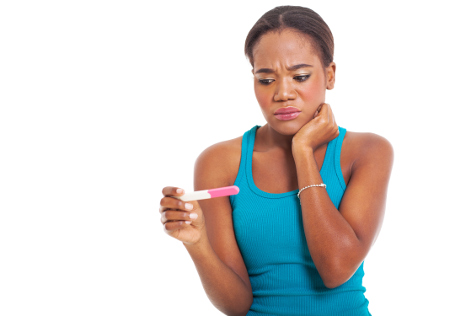When should I take a pregnancy test?
Understand the right time to take a pregnancy test for the most reliable result

You’re certain you’re showing the early signs of pregnancy, possibly including sore boobs, metallic taste in your mouth and even a little sickness, so you’re dying to take a pregnancy test but is it too early?
Some very sensitive tests can be used even before you miss a period.
Here are some important things to note to make sure you get the most accurate reading from your test and of course, to ensure you take it at the best time possible.
When is the best time to take a pregnancy test?
Timing is everything when you take a pregnancy test. Many tests advise you take the test as soon as your period is late. This is because your body will be making the pregnancy hormone, human chorionic gonadotrophin (hCG), by now and the test measures the amount detected in your urine.
If you’re not sure when your period is due, do a test at least 3 weeks after you last had unprotected sex.
It is important to remember that it can take a week or more after you’ve missed your period before you produce enough pregnancy hormones for a test to detect. If your period is late and your test is negative, leave it a week and if you still don’t have a period, do another test.
What time of day should I test?
The hormone hCG is most prominent in the morning, so taking the test in the morning can give you the most accurate result although many tests now say it doesn’t have to be in the morning.
Follow the instructions
Each test is different so don’t assume and make sure you take the time to read the instructions for the test you are using. Follow what it is says to the letter to ensure you get the most accurate result possible.
You might also like to read:
What if there is a faint line on the test?
If you only get a faint like, be sure to check you have followed the instructions correctly as if you haven’t followed them exactly, it could explain the faint line. The test could also show a faint line if you’re not as far along in your pregnancy as you thought. To be sure, leave it a week and test again.
Can you get a false positive test?
The straight answer is no, a faulty home pregnancy test is rare and the most common explanation for a false positive test is that when you took the test you were pregnant. Sadly, it’s not unheard of for some women to have a positive test, but then have a heavy period a few days after their period was due which is why testing before your period is due can also detect early pregnancy loss. So when someone says they had a false positive result, it means that the test they took after the original test was not positive like the first.
If you've tested positive and are convinced you're showing other signs of pregnancy, but think you still have your period, it could be implantation bleeding.